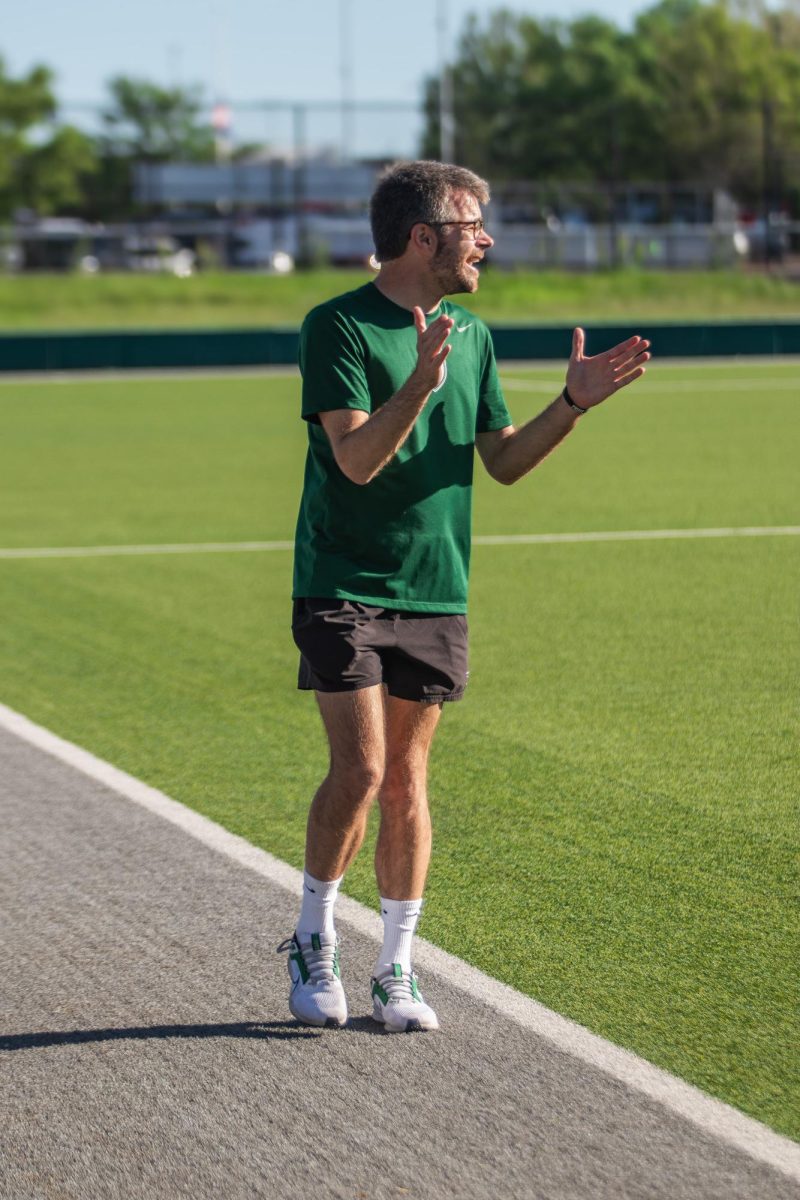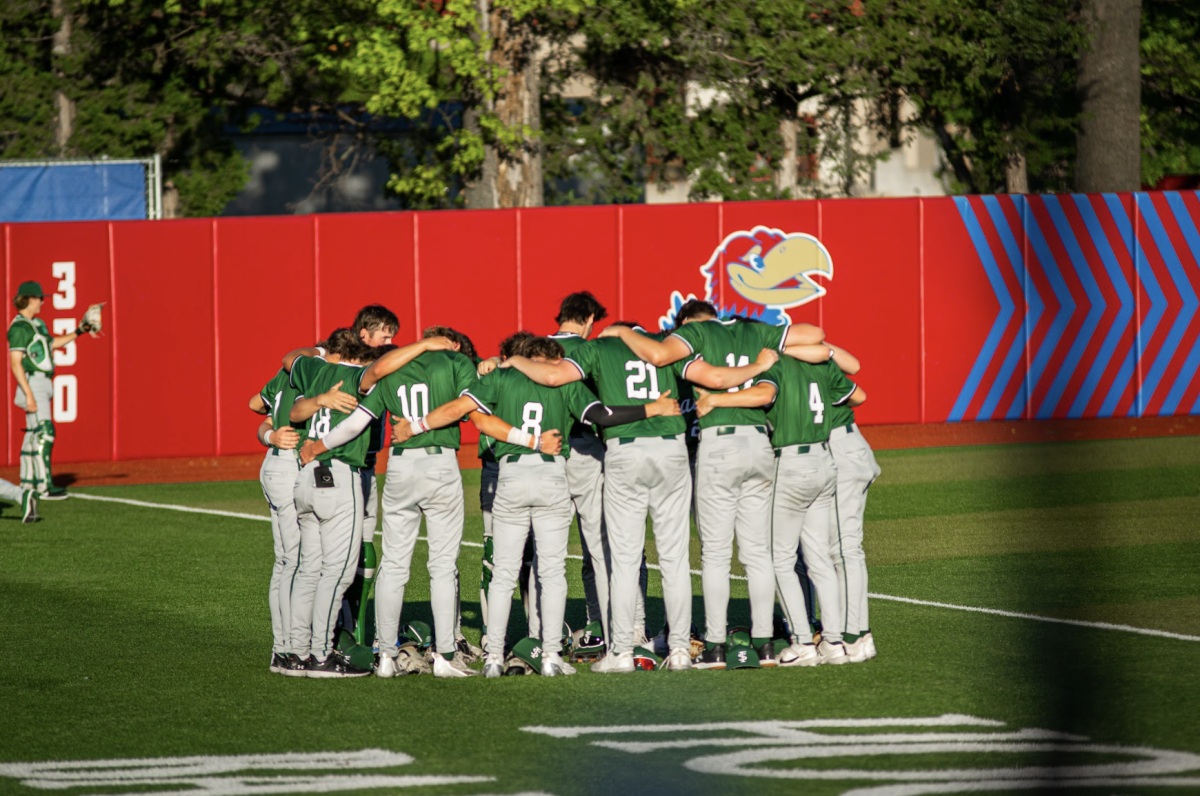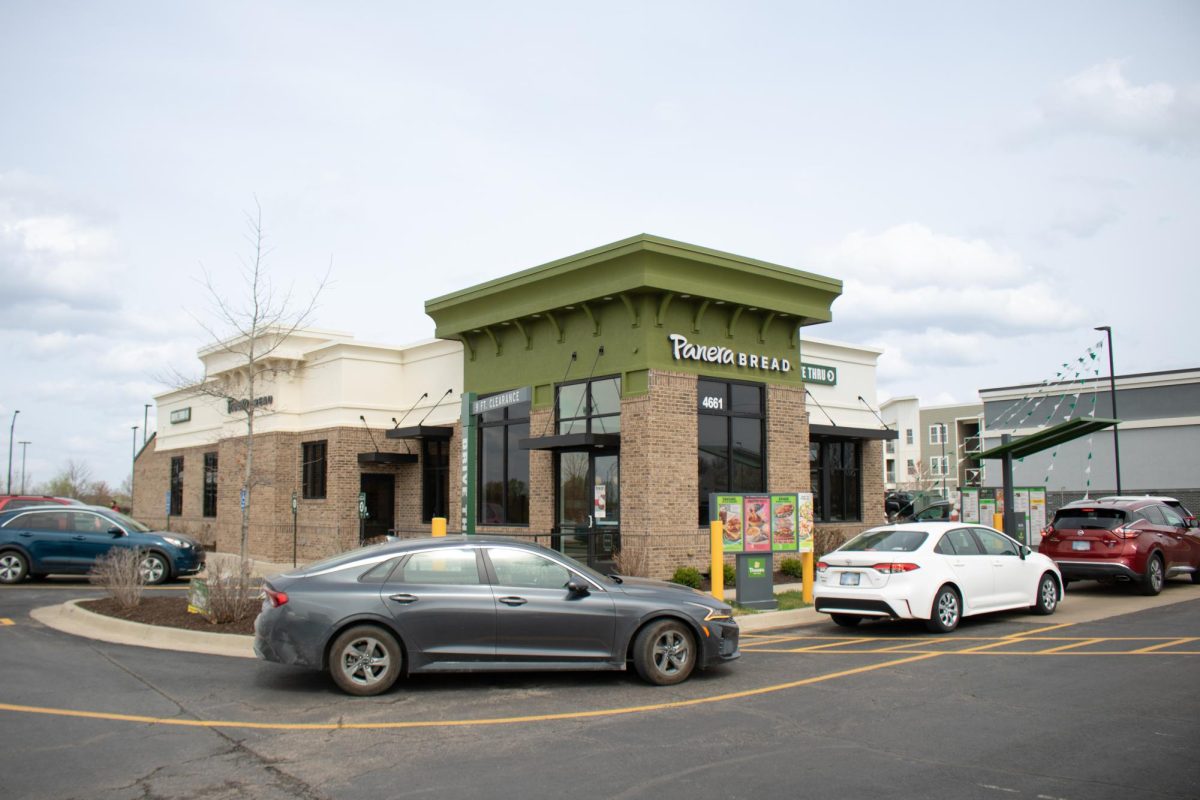Allison’s Take:
|
“All Western Kansas is, is a whole bunch of old war veterans sitting on their porches being racist and yelling about how things were ‘back in their day.’ And, I mean, everything west of Topeka really is Western Kansas.” There are only a few things that get under my skin to the degree where I can consider myself angry. Blatant ignorance is one of them. Unfortunately, I had to hear this example in one of my classes last school year. While I realize this is an extreme view that, hopefully, not many would claim as their own, it does highlight an underlying attitude held by a large part of the population here in Lawrence. The Lawrence community prides itself on being different than the rest of the state: A part of only three blue counties, an alternative music scene, home to “Honk for Hemp” signs held by locals downtown and to a large population of Birkenstock-wearing nomads. All of these things would be hard to find in any other part of the state. Now, let me be clear when I say there is nothing wrong with being a Democrat, liking little-known music or dressing in a way that may be considered “hipster” or “hippie.” There is, however, a problem with the elitist attitude that often accompanies this behavior. It seems to me that the people who are screaming for tolerance and acceptance of their unique-to-the-state opinions can be the quickest to be intolerant of what can be considered the typical or traditional Kansas life. As a future Kansas State University student, I get a little tired of people making snide comments about “majoring in farming.” One, K-State has literally dozens of other majors to offer. Two, and really more importantly, when exactly did agriculture become something that was so looked down upon? People who work in agriculture are some of the hardest working people I know. It takes an enormous amount of effort to run a farm. An effort without which most people would not be enjoying the food they consumed today. Like it or not, our country was built on the hard work people in “Western” Kansas do every single day. Another falsehood often taken as fact is that everything west of Topeka is “Western Kansas.” This is really just simple geography, here. Pull out your map of Kansas. Go on, do it. The halfway point is going to appear to be around Russell. Approximately 178.81 miles west of Topeka on I-70. I think it’s important to state here that Lawrence’s unique character as a town is something my fellow Lawrencians should pride themselves on. Lawrence is a great town full of great people with great ideas. My warning is to make sure the rest of the state isn’t isolated or looked down upon because it has a more traditional Midwestern culture. It’s the golden rule: treat others how you would want to be treated. And, in this case, accept others’ differences as you would like yours to be accepted. |
Recently, I saw the incredible, aesthetic performance of Trevor Powers’ indie project Youth Lagoon at the Jackpot Music Hall downtown.
“This is our first time in Kansas,” Trevor Powers said into the echoic microphone, his words quickly muffled by an eruption of cheers from the audience in the packed venue.
At the time, I didn’t think much about Powers’ crowd-pleasing statement. I just thought, “Cool,” and wiped the sweat from my head, continuing to cheer on the Boise native.
However, when later confronted with the challenge of writing an opinion story about stereotypes surrounding Lawrence and its citizens, Powers’ quote struck a reverberating chord in my head: he chose Lawrence not only out of other cities around the United States but out of any other city in Kansas.
Some readers may be thinking, “Well, duh, he chose Lawrence! Where else would he go, Manhattan?” And your sentiments are strongly justifiable; Lawrence is a vibrant college town, nationally known among musicians for wholly supporting the arts. Manhattan has relatively little to offer in terms of musical entertainment and nightlife, unless you’re an avid country music fan, but we’ll get to that later.
With Manhattan off the list of prominent college towns to visit in Kansas, that really only leaves Larryville.
After pedantic analysis of a minute statement, I came to the conclusion that Youth Lagoon decided to tour through Lawrence because it is a college town full of young college students and is also the cultural Mecca of Kansas.
Although Lawrence and Manhattan both share the first title of being a college town, the second title is reserved exclusively for Lawrence.
Lawrence is the cultural Mecca of Kansas, the shining oasis teeming with exuberant arts in a barren desert comprising mostly agriculturally affluent roadside stops. Yes, you heard correctly: Lawrence is the best part of Kansas.
Not to say that there is anything wrong with the rest of Kansas, it’s just that, in my opinion, Lawrence is what keeps Kansas from being another “square” state. And what convinces musicians to stop in Kansas in the first place.
Many readers probably express similar demographic faiths. However, this label has appeared to make Lawrencians elitist in the eyes of Kansans who reside in other towns.
Lawrencians, including myself, will often stereotype the rest of Kansas as comprising nothing but farms and flatlands. (The Flint Hills aren’t even that hilly).
It is important to note that the dichotomy between Lawrence and Manhattan–and, more generally, eastern Kansas and Western Kansas–lies in a few significant political, cultural and demographic distinctions: agriculture vs. arts culture; country vs. rock ‘n’ roll; conservative vs. liberal.
Manhattan validates the stereotype most out-of-staters believe to be true about Kansans: that they have something to do with farming, are staunch conservatives who elected Sam Brownback (Manhattan’s home county of Riley elected Brownback with a 59.3 percent majority) and love anything country related (Manhattan is hosting the 17th annual Country Stampede this year, a four-day country music festival).
The reason Lawrencians may indeed prize their values and differences so highly is that we are almost completely independent from the rest of Kansas in terms of politics and culture. Our liberal leanings, impressive appreciation of the arts and distinguished downtown place Lawrence out of the stereotype bubble of “typical Kansas.”
But the expressed polarity does not suggest a disputing relationship between the two extremes of liberal Lawrence and the rest of our more traditional graham-cracker-shaped state.
Maybe Kansas has found the appropriate balance of contemporary and traditional lifestyles that keeps it on an even kilter.
Although some Lawrencians may view the rest of Kansas as their kyrptonite, without the quaint, conservative small towns way out west, Lawrence may not be what it is: unique, independent and, at times, peculiar.

















